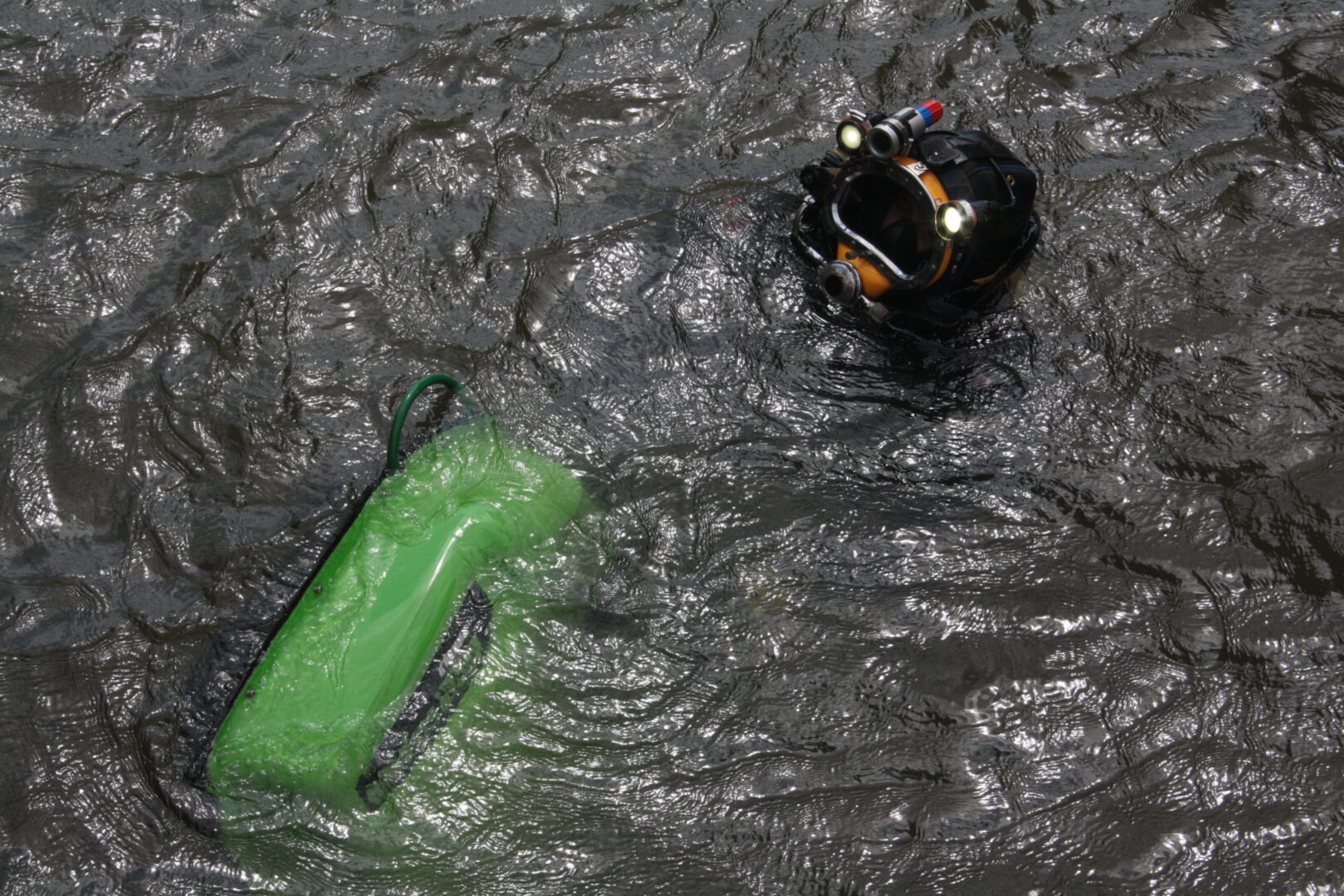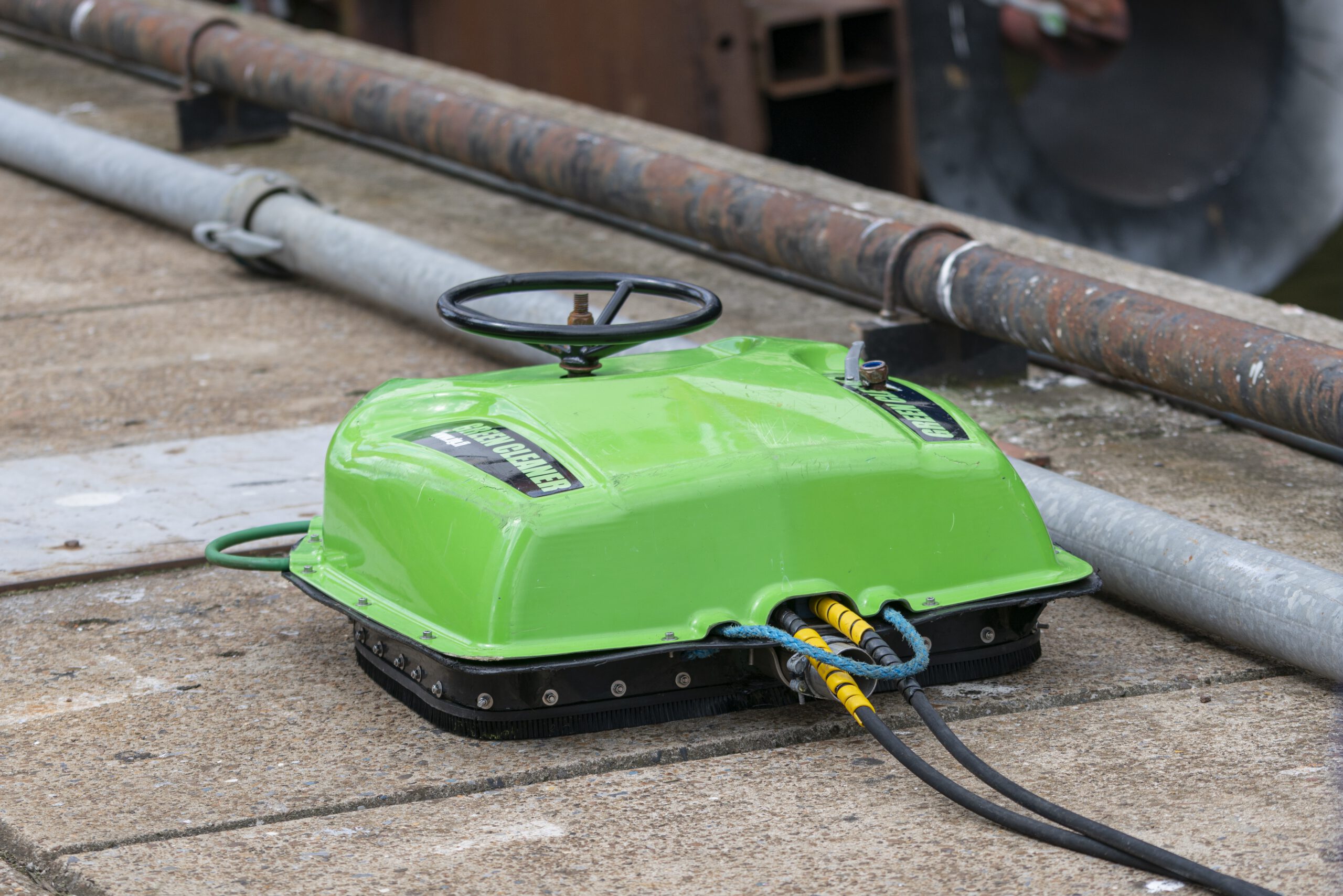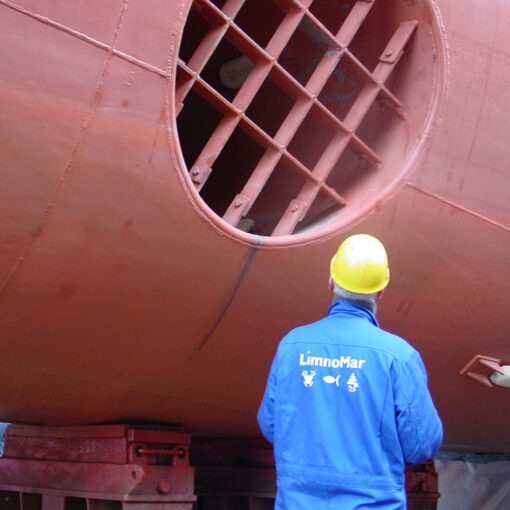Since 2018 a project consortium composed of representatives of the Environment Department of Bremen, and bremenports, on cooperation with the Coast Guard of Lower Saxony, the German Federal Agency of Shipping, paint companies, the Alfred Wegener Polar Institute Bremerhaven, the shipping company Laeisz, Nordseetaucher, and LimnoMar perform the research project CLEAN on in-water cleaning of ship hulls. The project focuses on three topics:

- Demonstration of practicability and efficacy of underwater cleaning of ships hulls coated with non-toxic, abrasion resistant coatings
- Demonstration of collection and filtration techniques/systems for the removed fouling organisms with respect to water quality and introduction of invasive species
- Drafting of application requirements for permissions of underwater hull cleaning and propeller polishing
There are the following documents available as downloads:
Link to the movie ‘In-water Cleaning of Vessels and Boats’
Promoting environmental protection at the ports of Bremen – Guidelines published for granting permission for in-water cleaning of ship hulls
First German guidelines for issuing permits for in-water hull cleaning as a result of the CLEAN project, partly funded by the Deutsche Bundesstiftung Umwelt, have been stated binding regulations for hull cleaning with the aim of reducing the introduction of pollutants into the waters of the ports of Bremen.
Biofouling refers to the growth of microorganisms, plants, algae and animals on all structures that are under water. Every ship always has a biofilm or even macrofouling if the antifouling coating is impaired because of prolonged lay times, low sailing speeds or operations in unforeseen trade areas. This growth has various negative effects on the environment. For shipowners, it is important to remove macrofouling as well as the biofilm in order to avoid excessive fuel consumption and thus minimise the cost of ship operations.
It is essential to ensure that biofouling is removed in a controlled environment, whether in the dock or during underwater cleaning. The aim is to reduce the environmental impact of marine shipping and avoid potential water pollution as a result of inexpert cleaning operations.
Underwater hull cleaning on faulty antifouling systems containing biocides, and even illegal cleaning operations, are unfortunately common practice in order to save costs, with the result that biocides are released into the water and the antifouling coating is frequently damaged or even abraded. Furthermore, failure to capture the abraded material properly leads to the introduction of biofouling, microplastics and contaminants (biocides) into the water.
The project elaborated the fundamental requirements for obtaining approval for in-water cleaning at port, leading to the publication of the first German guidelines for granting permits for in-water hull cleaning at the ports of Bremen. Die Senatorin für Klimaschutz, Umwelt, Mobilität, Stadtentwicklung und Wohnungsbau – Meeresumweltschutz (bremen.de)
Drawing up and publishing these guidelines is intended to enable the use of in-water cleaning systems at the ports of Bremen. This creates a sound legal basis for the development and use of innovative methods which satisfy the legal requirements and means that new cleaning techniques can be developed as part of proactive antifouling management.
The guidelines provide the cleaning companies and ship owners with a basis for applying for and
performing underwater hull cleaning at the ports of Bremen.
For the ports of Bremen, this is the next logical step on its way to becoming a green port as it will
enable underwater hull cleaning on biocide-free hard coatings at the ports in future, in addition to the environmentally friendly services that are already available there.
This scheme is an important milestone in abandoning what has been to date largely uncontrolled in-water hull cleaning in other countries where no protective measures are in place in favour of establishing water-friendly cleaning processes which comply with legal requirements and meet high quality standards. It will simultaneously promote the use of biocide-free antifouling systems in the interests of preventive water protection.
Guideline for the issue of inwater cleaning permits in the ports of Bremen can be downloaded here. PDF

